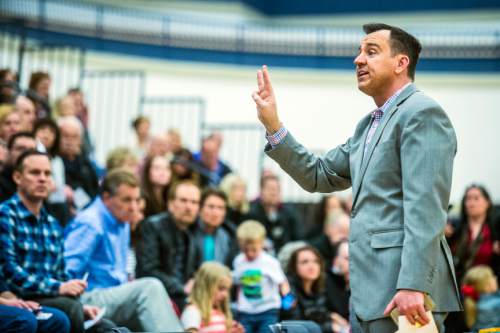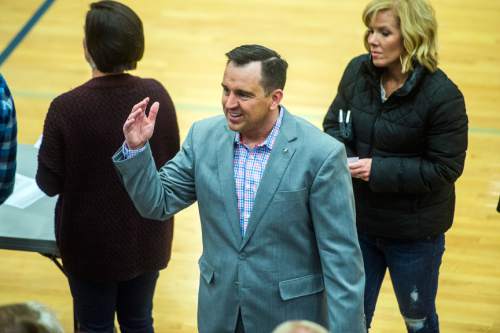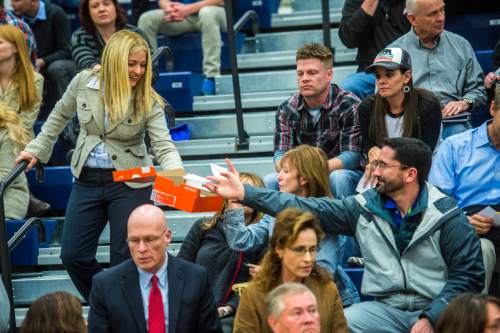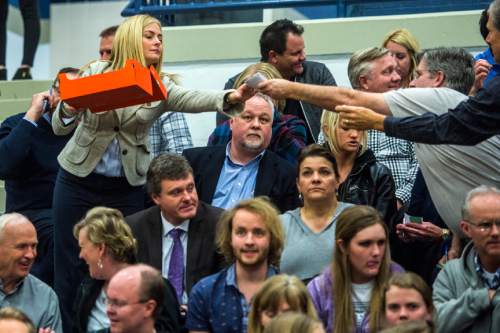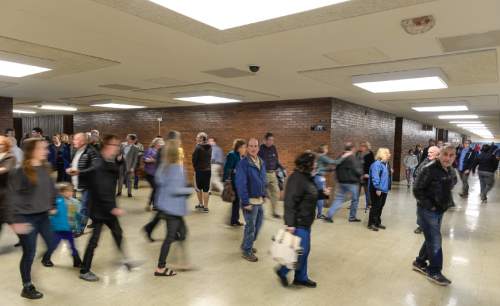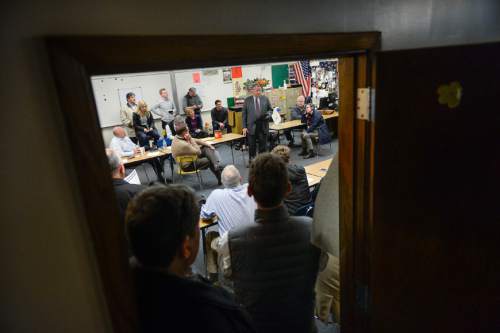This is an archived article that was published on sltrib.com in 2016, and information in the article may be outdated. It is provided only for personal research purposes and may not be reprinted.
Utah's Republican candidates for county, state and even federal office are getting increasingly frustrated.
Most of them hope to secure their party's nomination by persuading delegates at county and state conventions to support them, but that's hard to do if they don't know who those delegates are.
In a normal year, county Republican parties hand out lists of newly elected delegates a couple days after the caucuses, kicking off an intense month of campaigning before the conventions in April.
This year, due to the high interest in the presidential contest and unfamiliarity with a new database system, those delegate lists are still works in progress and it may take a few more days before the information is released.
"We haven't even gotten them yet," said Bryan Smith, executive director of the Utah Republican Party. "We are all a little antsy, and we are getting it from all the statewide candidates, too. We are all trying to do the best we can."
This delay in identifying delegates only matters in races where more than one Republican is seeking the same office, such as Senate District 16, where incumbent Sen. Curt Bramble, R-Provo, is facing a challenge from former state Rep. Chris Herrod and Timothy Spencer.
Bramble has secured a place on the state primary ballot by collecting signatures, but he wouldn't mind clearing the field at the state convention on April 23. To do that, he needs the backing of at least 60 percent of the roughly 120 delegates in his area.
When he realized that the delegate list wasn't forthcoming, Bramble started calling leaders in each precinct, cobbling together his own delegate list.
"I just kept making calls until I tracked down precinct chairs or delegates," he said. "It is called legwork, detective work."
Herrod says he still only has a partial list, and much of that came from a party insider who handed him the names of delegates he knew Bramble already had started contacting.
The top GOP candidates for governor are cobbling together their own statewide lists, hoping to get a jump on delegate outreach. Jonathan Johnson, chairman of Overstock.com, is challenging Gov. Gary Herbert.
"We made arrangements to collect it on our own. We have a large chunk of it," said Dave Hansen, Johnson's chief strategist, relying on supporters who ran to be delegates to gather the names.
Herbert's campaign has followed suit, trying to identify as many of the 4,000 delegates as possible.
"The governor is anxious to meet with delegates and earn their support," said Marty Carpenter, his campaign adviser. "We've been as proactive as possible."
It appears the problem is acute in Utah County, but it is present throughout the state. The party initially focused on getting the results of the presidential caucus vote out first, where Texas Sen. Ted Cruz dominated Ohio Gov. John Kasich and Donald Trump.
But it appears that a number of precinct chairmen and chairwomen, who run these neighborhood meetings, simply neglected to turn in the results of the delegate races, which were kept on paper, forcing county leaders to try to find the information and enter it into a spreadsheet.
"Some counties have to re-create those hard-copy rolls in a digital form, and it is taking longer than we anticipated," said Smith.
The state party held dozens of training sessions and so did some county parties, in part because the reporting process was different than the Republicans had used in previous years.
"There is a learning curve here," said Craig Frank, a former state House member who is now the chairman of the Utah County Republican Party.
He said many candidates offered to send aides to the county party to help input the data, but Frank rebuffed them, not wanting any candidate to have a leg up on his or her competition.
He said it is a challenge for a volunteer-led county party team and that he's emphasizing accuracy of the delegate information over speed.
"Fairness is the underlying thread in our actions here," he said.
As Frank's volunteers and those in other counties verify that information, the Republican candidates wait to learn the names, phone numbers and email addresses of the men and women who hold their political fate in their hands.
The most populous counties hold their conventions on April 16, less than three weeks from now.
And the state convention, which covers every race that spans a county line takes place on April 23.


